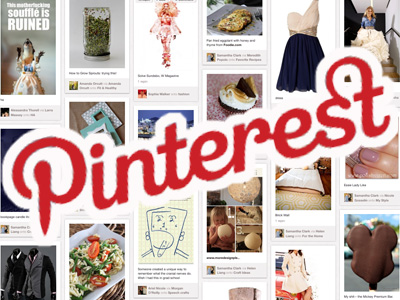 Groupon, the newest member of the social network billionaires’ club, turned down a 6 billion dollar offer from Google and is planning an initial public offering instead. The deal-of-the-day company with more than 50 million users across the globe raised a 950 million dollar investment from investors recently and could reach an estimated value of 15 billion dollars if it proceeds with IPO.
Groupon, the newest member of the social network billionaires’ club, turned down a 6 billion dollar offer from Google and is planning an initial public offering instead. The deal-of-the-day company with more than 50 million users across the globe raised a 950 million dollar investment from investors recently and could reach an estimated value of 15 billion dollars if it proceeds with IPO.
Very nice result, especially when the company is not even three years old.
Groupon claims that 97% of its SME advertisers would be happy to run another promotion. However, according to a study by MerchantCircle, even if 11% of the local businesses uses some kind of daily offers and 20% is considering using them shortly, 55% of the businesses that have promoted themselves through promotional networks such as Groupon or LivingSocial would not repeat the experience. Interesting.
Is Groupon’s high value estimation only due to the novelty and current excitement surrounding fast-growing Web companies or is Groupon really a phenomenon here to stay?
Attractive business model easy to copy
Groupon works with retailers using the power of group buying. It offers the local businesses a chance to introduce themselves through daily offers for a big quantity of users they normally would not reach. Since each deal is only valid for one day, users feel a need to take advantage of it before it is too late.
Groupon gets a certain percentage of each offer that is sold, however each coupon has a certain minimum. If the number of people signing up for the deal does not reach the limit, neither Groupon nor the business make money.
Problem is that even if this business model is attractive, it is also easy to copy and start up costs are extremely low. There are several competitors popping up with a hope to reach similar success, the most relevant being LivingSocial partly owned by Amazon. In the more mature and competitive market Groupon is not likely to hold its current market share.
More Social Media proficient SMEs
Groupon is also taking advantage of the social elements by using Facebook Connect and Twitter and it also has strong online advertising especially on Facebook. This creates SMEs social media visibility and a nice alternative for traditional advertising.
However, according to a study by MerchantCircle, at the same time the use of Facebook for local SME marketing activities has increased 40% in 2010 and 40% of the interviewed SMEs uses also Twitter to promote their products and services. Low cost of creating and maintaining these social network pages are very attractive for SMEs and it might decrease the amount of local businesses interested in Groupon.
More proficient local businesses are in Social Media platforms, less they need deal-of-the-day sites such as Groupon and LivingSocial.
Frustrated and more selective consumers
Let’s be honest: most of these daily deals are not really what we need, such as spa treatments, hammam, restaurants, flower arrangements…usually we would not buy this “stuff” if it was not “so cheap”. Right now Groupon and other daily deals are a novelty yet only a quick look at the feedback around the net shows that users are becoming less and less enthusiastic.
Most of the deals are pretty on the surface, but in the end user ends up buying the voucher at the same time as hundreds or thousands of other users. It means that by the time user picks up the phone and calls the restaurant, beauty salon or other local business, they are already fully booked and next time that suits his schedule is months away. After a long wait, user is usually received as “another grouponer who did not bother to pay the full price” and is not treated like a normal customer.
Even more frustrating for users is to find out that the pricing is more expensive on the Groupon site than the SME’s main website, like what happened with FTD and Valentine’s day flowers. It happened nicely around same time with the recent Groupon’s Super Bowl advertising fiasco, where the commercial was perceived to be very offensive.
It does not matter how cheap the deal is, after experiences like these consumers are becoming more vary and suspicious of the daily offers and might start to think twice before taking advantage of them. When the magic wears off, consumers will do less impulse buying and look for more relevant and reliable deals.
Frustrated local businesses and low ROI
“Most of the Grouponers were what we call ‘deal- seekers’; they felt entitled to special treatment, didn’t spend more than what the Groupon itself cost, they didn’t tip, and most won’t be repeat customers”
According to a study by Rice university interviewing 150 Groupon advertisers, 32% of the survey respondents said Groupon was not profitable for them. According to the survey report, the unprofitable SME group claimed that less than 15% came back to purchase products at full price, compared with 31% the profitable segment has.
Yet even among the profitable segment, almost 20% said they would not run another Groupon promotion again. Another study by MerchantCircle indicates that 55% of the local businesses promoting themselves through sites such as Groupon or LivingSocial would not repeat the experience either. The local businesses are unsatisfied with the quality of the customers, indicating that they are highly price sensitive people only after the deal and not likely to come back.
Other problem for SMEs is the cannibalization; margins are low for new acquired customers and the existing customers take advantage of the cheap deal instead of paying the full price. It is also very easy to cheat, meaning for example excessive purchase of the same cheap vouchers by using different emails. Identity control is quite inexistent, so even if some grouponers return to the local businesses, they might still not pay the full price.
Vicious Circle
This business model is attractive, but very much like a vicious circle: Small local businesses are usually overwhelmed by demand and cannot meet all the customer inquiries that arrive at the same time, customers get frustrated and become negative, local business gets frustrated of the negativity and people who do not show up on agreed time or at all, local business starts to generalize that all grouponers are just cheap deal hunters, customers are not treated well and would not return or recommend the establishment for their frieds, local business would not like to have another Groupon promotion and consumer becomes more suspicious of the offers.
Unclear financial results:
As a privately-held company, Groupon does not have to release their financial results. According to some press releases, Groupon’s revenues were 500 million in 2010, then other sources claimed it was more than 1 billion dollars, tech press said their revenue was actually 2 billion dollars but apparently a trusted source with knowledge of Groupon’s financials said the real revenue was 800 million. Confusing.
Unless the income statement is officially released, no one will know for sure. And I doubt it will as long as Groupon is private and can keep people guessing.
Is Groupon worth it?
Whether jumping in the Groupon bandwagon suits you highly depends on your business and whether you have enough budget, resources and patience to offer customers an experience worth coming back. If not, all you will receive is a low ROI, frustration and bad word of mouth.
What comes to investors, Groupon may be growing still for a while, but it is better to be careful. Not revealing exact numbers and by refusing Google’s offer, the company is building expectation and taking advantage of the market’s momentum. But if the company does not attack its weak points and improve customer and local business experience, it might face a lot of trouble. Next year, the situation might be very different.
As Greg Sterling, the founder of Sterling Market Intelligence, says:
“It’s smart to strike while the iron is hot, and they’re the most visible and fastest-growing player in their market. To wait a year would inject a level of uncertainty…”







